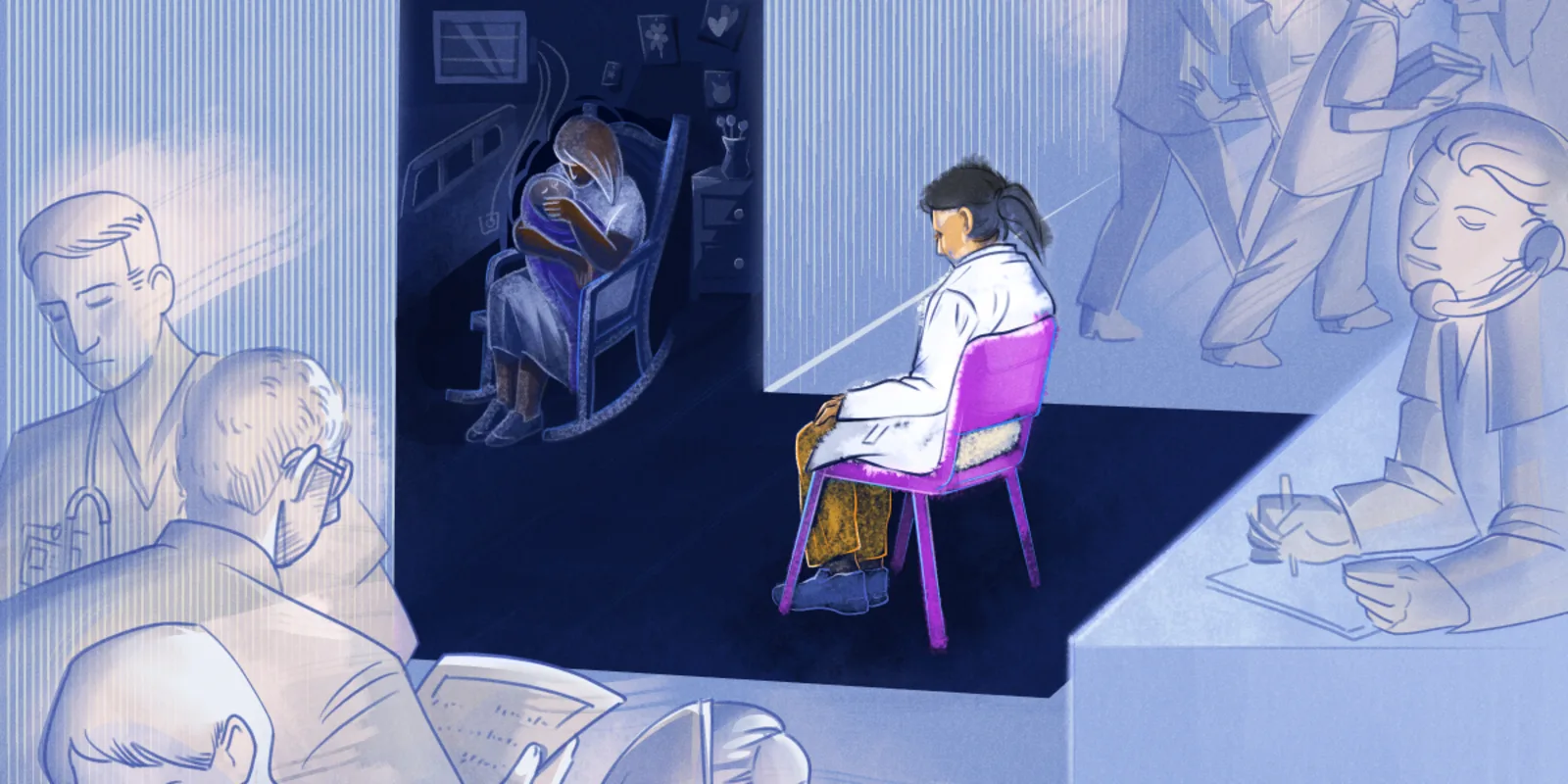 It's been nearly 40 years since I finished my pediatric residency training. In my last year I was a new wife, and my husband and I had moved from Philadelphia — where I did the first two years of training — to a smaller Midwestern City — where he had been hired as a pediatric specialist at the same hospital where I would be doing my last year of my residency.
It's been nearly 40 years since I finished my pediatric residency training. In my last year I was a new wife, and my husband and I had moved from Philadelphia — where I did the first two years of training — to a smaller Midwestern City — where he had been hired as a pediatric specialist at the same hospital where I would be doing my last year of my residency.
Even now, when I am struggling with the demands of practice, much closer to retirement than to the beginning of my career, my nighttime dreams take me back to the days of training. In my reveries, I face one disaster or another: I might be late for rounds, have five hospitalized children to report on who I have never seen, or have to rotate through the ICU, not remembering the dosages needed to treat a critically ill child or the calculations for the IV fluid needs of a premature newborn.
I have never dreamt of getting lost in a hospital, but that did happen to me. My first night on call at the new hospital where I was a "senior resident," in the years when there were very few staff doctors on site during the middle of night, I was STAT paged to the ER. We didn’t all carry beepers during those days; the overhead page operator was calling out, for all to hear, "Dr. Wasserman, Emergency room, STAT." That meant something bad was happening and I was to get there immediately. "Dr Wasserman, Emergency Room, STAT."
The only trouble was, I didn’t know how to get to the ER the corner of the hospital wards where I was at that moment. As the operator continued to call my name, I careened through the wards, asking the nurses, the janitors, anyone I saw: "How do I get to the ER?" I guess I got there, I only remember the frantic run trying to find it.
Being in a new hospital for the last year of residency had other challenges, too. No one knew me and the trust that gets built up between the nurses and doctors through night after night of working together wasn’t there for me. It was when several months into the year when I got another frantic page, this time asking me to call the floor that took care of oncology patients. "You have to come here right away," the voice on the other end of the phone said, as I shook myself awake at about 3 or 4 in the morning. I had been asleep in the “on call room” for maybe 45 minutes.
I did not cut an impressive figure as I arrived to deal with this unknown crisis. I thought an IV might need restarting or that pain medication needed to be ordered for a suffering child. I was wholly unprepared for the circle of nurses and respiratory therapist who clustered together and looked up as I entered the ward. At five feet tall and 100 pounds, parents often reminded me that I looked more like their teenagers than like a doctor. Added to that was the fact that I hadn’t worked on that oncology floor prior to the night in question. My oncology training had been at the Children’s Hospital of Philadelphia, five hundred miles away, where I had gotten my medical feet wet and where I knew the staff, the nurses, and the doctors who made the big decisions and cured children with cancer. This seemed to increase the collective anxiety.
"We need you to do something," one of them blurted out. "Little Bobby Jones died tonight."
I looked at my cheat sheet — the information provided by one resident to the covering doctor at the end of the day to prepare him or her for problems that might occur on the overnight watch. "Bobby Jones," it said, "neuroblastoma, may die tonight." The death, terribly sad as it was, was not unexpected. I would have to “pronounce” the child dead and sign the death certificate, certainly not a request that should require the whole contingent of five or six staff members who were facing me.
"You have to do something," one repeated. "The mother won’t let us in. She won’t let us touch him. The IV is on, the monitors are on, the oxygen is on. We’ve turned the alarm off out here and we tried to talk to her but she won’t let us come in."
Their gazes rose up as one and pointed down the hall, pushing me visually towards the designated room. I moved down the corridor towards the door opening. It was dark inside but I could see a rocking chair. A woman bent down over a still figure wrapped in an afghan blanket in her lap. There were tubes and cords and all the paraphernalia that gets brought into the room of a very sick child. There were also stuffed animals in the empty bed, and cards pasted up on the walls and the shades were drawn, and it seemed gray inside except for the dim light at the head of the bed, and the monitor lines that weren’t moving.
I stood and watched. The child didn’t move, the mother didn’t move, and I didn’t move. I stood there and felt my breaths go in and out. I heard the pages being called out for other doctors in other parts of the hospital. I heard movement behind me as the respiratory therapist left the floor and the remaining nurses began to attend to other children.
When Bobby’s nurse tapped me on the shoulder, I turned to her and we walked back to the nurse’s station.
"Are you going in?" she asked. I shook my head.
I pulled a chair out and placed it halfway between the nurses’ desk and the door to the room. As I sat in the cool green scrub suit I wore for my nighttime shift, I watched the room shades in their blackness gradually begin to lighten. I saw the mother’s features emerge and I could see the small face held to her chest. As the hospital slowly came to life, the mother came out alone. Her face was dry. She never looked me in the eye, but she whispered, as she went by, "thank you."
I remember the room, the hall, the door to the ward, the chair, the silence, and the emptiness as little Bobby Jones and his mother said goodbye.
Dr. Diana Wasserman practices Developmental Behavioral Pediatrics at Massachusetts General Hospital Lurie Center for Autism. What she learned one night during her third year of residency has guided her approach to families, grief, and death throughout her almost 40 years of practice.
All names and identifying information have been modified to protect patient privacy.
Illustration by April Brust






